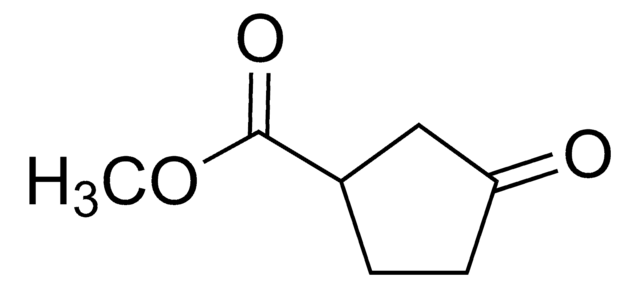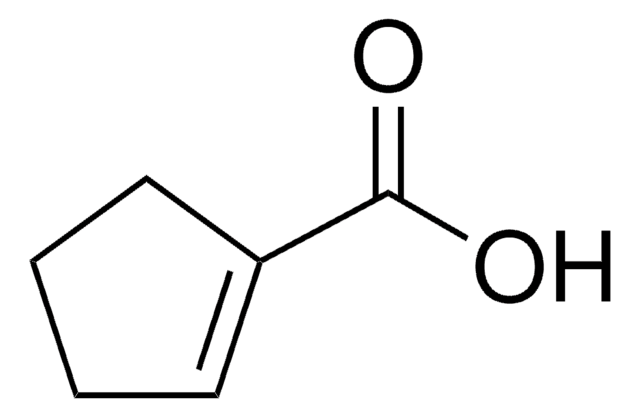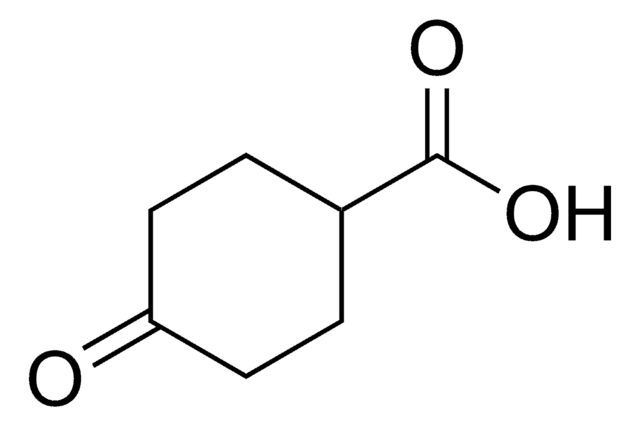About This Item
Recommended Products
Quality Level
Assay
97%
mp
59-62 °C (lit.)
functional group
carboxylic acid
ketone
SMILES string
OC(=O)C1CCC(=O)C1
InChI
1S/C6H8O3/c7-5-2-1-4(3-5)6(8)9/h4H,1-3H2,(H,8,9)
InChI key
RDSNBKRWKBMPOP-UHFFFAOYSA-N
Related Categories
General description
Application
Legal Information
Rieke is a registered trademark of Rieke Metals, Inc.
Storage Class Code
11 - Combustible Solids
WGK
WGK 3
Flash Point(F)
Not applicable
Flash Point(C)
Not applicable
Personal Protective Equipment
Choose from one of the most recent versions:
Already Own This Product?
Find documentation for the products that you have recently purchased in the Document Library.
Articles
Phase I biotransformation reactions increase drug compound polarity, mainly occurring in hepatic circulation.
Phase I biotransformation reactions increase drug compound polarity, mainly occurring in hepatic circulation.
Phase I biotransformation reactions increase drug compound polarity, mainly occurring in hepatic circulation.
Phase I biotransformation reactions increase drug compound polarity, mainly occurring in hepatic circulation.
Our team of scientists has experience in all areas of research including Life Science, Material Science, Chemical Synthesis, Chromatography, Analytical and many others.
Contact Technical Service








